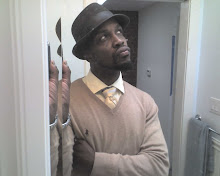
High School Star Lacking in Height, Not in Range
Uli Seit for The New York Times
Uli Seit for The New York Times
It was nothing that Oliva said he had not witnessed many times before at Christ the King Regional High School in Queens. But one night last month in Springfield, Mo., during a semifinal game at the Bass Pro Shops Tournament of Champions against Kickapoo, Walker proved again why he has been a well-regarded figure in New York basketball circles since he was in elementary school. And why, at barely 5 feet 8 inches, he has earned a scholarship to play at Florida.
With his team trailing by 11 points in the third quarter, Walker brought back the Royals almost single-handedly. He made five 3-pointers down the stretch and finished with 28 points in Christ the King’s 63-59 victory. At least a couple of those shots came from deep in N.B.A. 3-point range, and they drove the crowd into a frenzy. Even Walker, who is known for his preternatural coolness in the clutch, allowed himself a rare celebratory moment amid the run, leaping and pumping his fist after one of his 3-pointers.
“He’s done something that no other player in the history of Christ the King has ever done,” said Oliva, who has coached dozens of college and professional standouts in his three decades at the school, including guards Speedy Claxton and Erick Barkley. “He’s taken games that were essentially over and brought us back to life.”
Oliva discovered Walker in the third grade, when Walker showed up at Oliva’s summer camp. He was an impossibly tiny boy who was already wowing his coaches.
Even then, Walker — who, in Oliva’s estimation, stood about 4-4 — was already a veteran of the game. He started playing basketball when he was 3, when his father began taking him to his weekend pickup games. By 5, Walker said, he could sink 3-point shots. From there, his range continued to extend.
In a recent contest with a teammate at practice, Oliva said, Walker made three shots in a row from halfcourt.
When his son falls into a shooting slump, Robert Walker said his advice was counterintuitive: “I tell him to move further back.”
Walker was always several inches shorter than his classmates, but he was gifted with great quickness. His mother, Kim, was once a high school track star in Brooklyn, according to her husband. Their son developed through youth programs in his Bedford-Stuyvesant neighborhood. By the fifth grade, when Walker’s team won an Amateur Athletic Union national championship, he was already on the watch lists of local scouts. He said he had grown to 4-8 by then.
His coaches, his parents, the scouts and Walker assumed he would have a growth spurt at some point. It has yet to happen.
“I’ve always tried to play like a 5-8 kid, rather than like I’m 6 feet,” Walker said. “I try to be smart about it.”
Robert Walker is 6 feet tall, and his wife is 5-6. Their son has large hands and can palm a basketball. But, Robert Walker said, “I still pray for two to three inches somewhere along the line.”
Still, Walker’s astounding shooting range, his quickness and his burgeoning abilities as a pure point guard drew the interest of a number of N.C.A.A. Division I programs. So, too, did his calm under pressure, which Oliva hopes will help as Christ the King seeks its second consecutive Catholic High School Athletic Association championship over the next few weeks.
Dave Telep, the director of recruiting for Scout.com, has Walker ranked as the No. 29 point guard in his class.
“You’re looking at a guy who has a history of winning and who can assimilate into the chemistry of the team,” Telep said. “That’s the value of Erving Walker to Florida.”
Would he be ranked higher if he were, say, 6-2?
“I don’t know if he’d be as tough as he is if he were 6-2,” Telep said. “You have to learn to be 5-8.”
Walker said he chose Florida in part because the Gators’ coach, Billy Donovan, was an undersized guard from the New York City area. But he approached his recruitment the same way he seemed to approach virtually everything, with a nonchalance that eclipsed that of his father.
“I fell in love with Florida right away, and he had to calm me down and tell me there’s other places to see,” Robert Walker said. “But he’s always been reserved.”
That sense of calm may be the reason for Walker’s ability to produce in clutch situations. His father remembers a game when Walker was 7 or 8 and playing against 9- and 10-year-olds. He kept shooting long 3-pointers to send the game into overtime, then double overtime.
“I’m not a rah-rah guy,” Walker said. “Whether you’re down 4 with five minutes to play, or you’re up 20, it’s just the same game. So why change?”


No comments:
Post a Comment